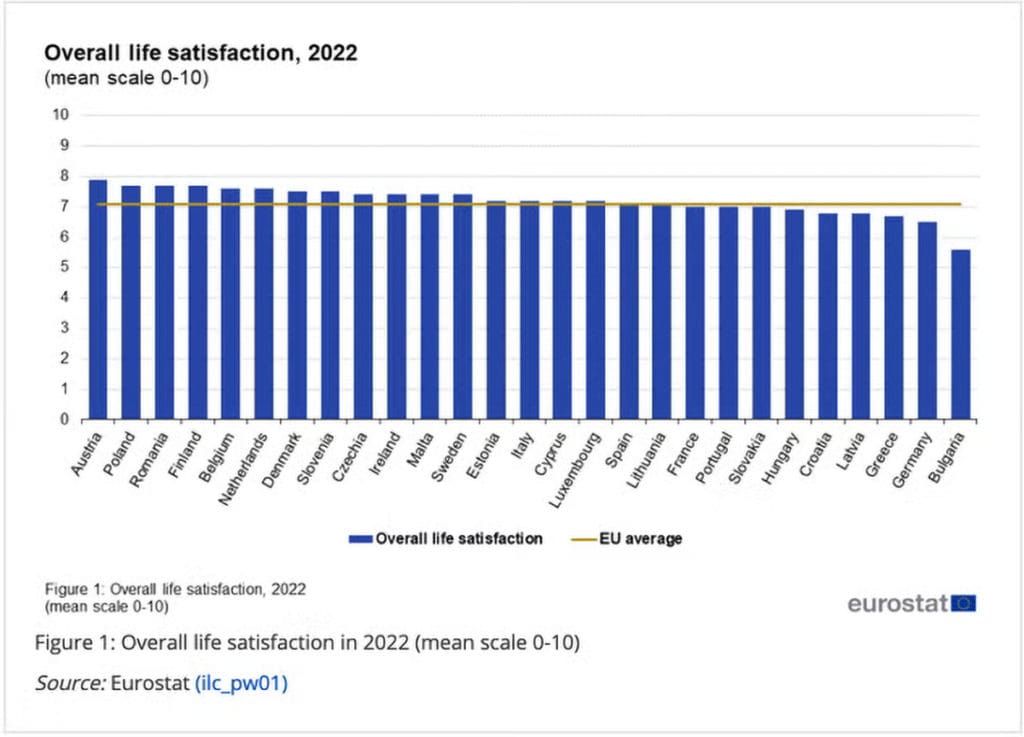Forums dedicated to Polish culture and travel often feature some rather controversial topics about Poles, asking why they “don’t smile” or “why Poles sound so sad.” Often, entire articles seem to paint Poland in a rather gloomy light, such as “Poland, Where Happiness Goes To Die.” That same article cites Professor Philip Zimbardo, a world-renowned social psychologist from Stanford University, who said about Poland: “Each time I come here, I feel like I’m in a mental institution. Nobody smiles, and people mutter instead of responding.”
However, what if such stereotypes of Poland and Poles are not very accurate?
According to Eurostat figures, Romania, Poland and Finland are all tied for second place as the happiest countries in the European Union. The survey measured EU citizens’ satisfaction with their lives, with the scale ranging from 0 to 10 — 10 being maximum satisfaction and 0 being absolute dissatisfaction.
[pp id=8381]
Austrians scored 7.9 out of 10, topping the list of the happiest EU countries.
Romania, Poland and Finland tied for second place with 7.7 points. Bulgaria is at the bottom of the list with 5.6 points and is the only country not to score six. The average satisfaction level in the EU was 7.1 points.
Interestingly, countries such as Romania and Poland, previously associated with low income levels, are now among the happiest, highlighting the complexity of subjective well-being and economic prosperity.
According to the survey, German citizens are the most dissatisfied, with an average score of only 6.5. In 2014, Poles made only a quarter of what Germans made in terms of income. However, the gap has closed somewhat since then and the economic prospects for Poles have improved. Germany, on the other hand, is on the decline, both economically and socially, under its left-liberal government.

Rich countries such as France, Spain and Italy rank around 7.1. Hungary has a satisfaction level of 6.9.
The Independent notes that Eurostat’s poll shows that German satisfaction has fallen from 7.1 to 6.5 in a year, driven by economic stagnation, the conflict in Ukraine and immigration problems.
A more detailed analysis by Eurostat shows that educational attainment has a positive impact on satisfaction across the EU. People with a tertiary education are the happiest in Romania, with an average score of 8.5. And there is a large gap between those with higher education and those with less education, with the latter averaging 7.
Age also plays a role in satisfaction. In general, 16-29-year-olds are more satisfied than those aged 65 and over. In Romania, the average for young people is 8.1, while the average for older people is 7.1. Among urban residents, Romania leads with an average of 8.
The survey shows that couples with children are more satisfied than couples without children or living alone. In 2022, the average for couples with children was 7.3, compared to 7.1 for couples without children and 6.7 for people living alone. However, they note that since 2018, the satisfaction level of couples with children has decreased by 0.3.





